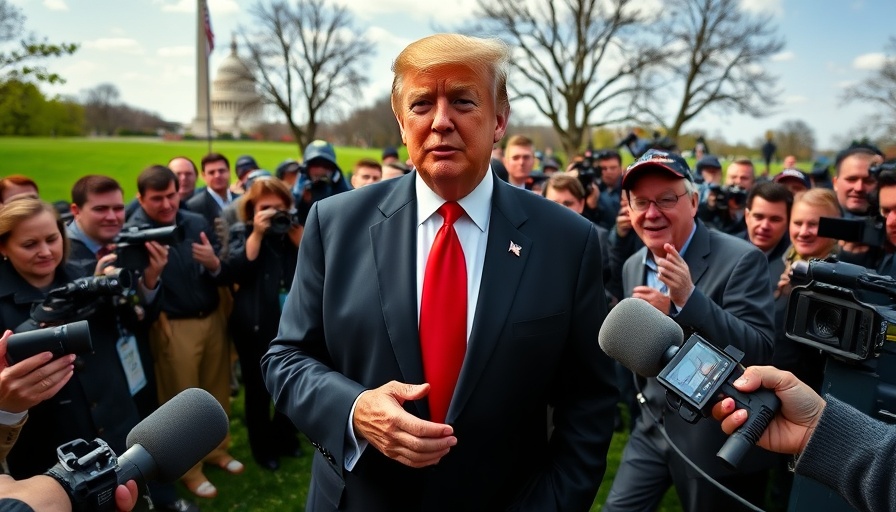
Trump’s Attack on Opponents: A Shift in Strategy?
In the wake of Charlie Kirk’s tragic demise, Donald Trump is intensifying his verbal assaults on political opponents, sparking concerns regarding the ramifications of his rhetoric in these heated times. Kirk, a prominent conservative figure, was well-known for his unwavering support of Trump and controversial statements that echoed right-leaning sentiments, blending political advocacy with personal allegiance. This rising tide of aggression from Trump raises questions about the underlying motivations and the broader implications for American political discourse.
A Culture of Political Polarization
As political polarization deepens, Trump's recent comments reflect a broader trend where public figures utilize incendiary language to galvanize their base. This phenomenon isn’t new; it mirrors historical instances where political figures resorted to aggressive rhetoric as a means to energize their supporters. For example, during the 2016 election, both Trump and his opponents leveraged aggressive strategies to define their narratives. However, with the stakes of the upcoming elections soaring, the potential for such rhetoric to incite unrest poses heightened risks.
Examining Public Response: Fear or Empowerment?
The response from the American public is varied. Some view Trump’s comments as an abuse of power, potentially inciting violence against political rivals, while supporters argue it demonstrates strength and loyalty to the conservative cause. Polls indicate a sharp divide, with younger voters leaning towards candidates advocating progressive reforms, contrasting sharply with the older, more conservative voter base that clings to Trump's leadership style. The question remains: does this polarization empower voters to engage more actively, or does it foster a climate of fear and deterrence?
Media Implications: Are We Encouraging Violence?
Media narratives play a crucial role in either amplifying or mitigating the effects of aggressive political discourse. News outlets must navigate the fine line between reporting on Trump’s rhetoric and avoiding the normalization of dangerous ideologies. As seen in recent events, the framing of such discussions can either galvanize public opinion against violence or inadvertently endorse a culture that exploits fear and division. The critical challenge lies in how journalists present these narratives and the potential consequences of sensationalism.
Future Implications for Political Campaigns
Looking ahead, it’s pivotal for political strategists to evaluate the lasting impacts of Trump’s tactics on political campaigning. As election season draws nearer, candidates will likely analyze Trump’s approach. The risk is that they adopt similar strategies without comprehending the broader societal repercussions. This could lead to an election cycle defined by aggressive posturing rather than substantive debate on policy and issues that truly matter to the electorate.
Conclusion: A Call to Reflection
The events following Charlie Kirk’s death may serve as a grim catalyst for a further evolution of political discourse in America. As citizens, it is imperative to engage critically with the narratives presented by our leaders, recognizing the potential consequences of our collective response. May we foster discussions that prioritize clarity and civility, ensuring our political engagement contributes positively to the fabric of our democracy.
As we continue to navigate these tumultuous times, we encourage readers to remain informed on the latest national news headlines and participate in constructive conversations regarding political strategies and societal implications. Your voice matters now more than ever.
 Add Element
Add Element  Add Row
Add Row 



Write A Comment